Related Research Articles
Telecommunications in Namibia include radio, television, fixed and mobile telephones, and the Internet.
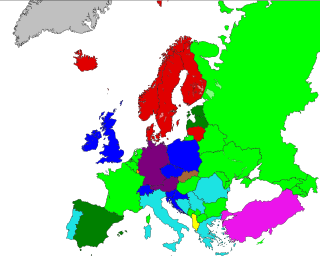
A television licence or broadcast receiving licence is a payment required in many countries for the reception of television broadcasts, or the possession of a television set where some broadcasts are funded in full or in part by the licence fee paid. The fee is sometimes also required to own a radio or receive radio broadcasts. A TV licence is therefore effectively a hypothecated tax for the purpose of funding public broadcasting, thus allowing public broadcasters to transmit television programmes without, or with only supplemental, funding from radio and television advertisements. However, in some cases the balance between public funding and advertisements is the opposite – the Polish broadcaster TVP receives more funds from advertisements than from its TV tax.

Low-power broadcasting is broadcasting by a broadcast station at a low electric power to a smaller service area than "full power" stations within the same region. It is often distinguished from "micropower broadcasting" and broadcast translators. LPAM, LPFM and LPTV are in various levels of use across the world, varying widely based on the laws and their enforcement.
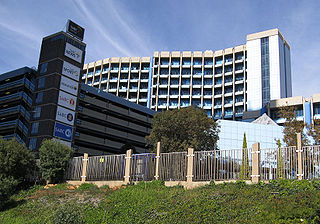
The South African Broadcasting Corporation is the public broadcaster in South Africa, and provides 19 radio stations (AM/FM) as well as six television broadcasts to the general public. It is one of the largest of South Africa's state-owned enterprises.

Community radio is a radio service offering a third model of radio broadcasting in addition to commercial and public broadcasting. Community stations serve geographic communities and communities of interest. They broadcast content that is popular and relevant to a local, specific audience but is often overlooked by commercial or mass-media broadcasters. Community radio stations are operated, owned, and influenced by the communities they serve. They are generally nonprofit and provide a mechanism for enabling individuals, groups, and communities to tell their own stories, to share experiences and, in a media-rich world, to become creators and contributors of media.
Pirate radio in the United Kingdom (UK) has been a popular and enduring radio medium since the 1960s, despite expansions in licensed broadcasting, and the advent of both digital radio and internet radio. Although it peaked throughout the 1960s and again during the 1980s/1990s, it remains in existence today. Having moved from transmitting from ships in the sea to towerblocks across UK towns and cities, in 2009 the UK broadcasting regulator Ofcom estimated more than 150 pirate radio stations were still operating.
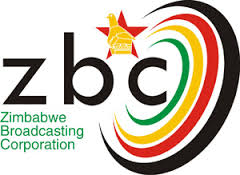
The Zimbabwe Broadcasting Corporation (ZBC) is the state-controlled broadcaster in Zimbabwe. It was established as the Rhodesian Broadcasting Corporation (RBC), taking its current name in 1980. Like the RBC before it, the ZBC has been accused of being a government mouthpiece with no editorial independence.
KCR College Radio is an American online radio station. Located on the campus of San Diego State University (SDSU), it was established in 1969 as a student-run alternative to the educational radio station that would become KPBS.

The Namibian Broadcasting Corporation (NBC) is the public broadcaster of Namibia. It was established in 1979, under the name South West African Broadcasting Corporation (SWABC).

KCRS, commonly called Newstalk 550 KCRS, is a radio station broadcasting a News Talk Information format. Licensed to Midland, Texas, United States, the station serves the Odessa-Midland area. The station is currently owned by ICA Radio Midland-Odessa License, LLC and features programming from Fox News Radio, Premiere Radio Networks and Sporting News Radio. KCRS also carries live sports for the Permian Basin. Currently the station carries the games of the Midland RockHounds of Minor League Baseball's Texas League as well as football broadcasts for the Midland High Bulldogs and the Legacy High Rebels on a rotating basis with Lonestar 92.
Takeover Radio is a community radio station broadcasting on FM to Leicester and online. It also has a sister station, that broadcasts to the Ashfield district in Nottinghamshire. Takeover Radio specialises in helping children gain experience and direct participative involvement in radio broadcasting.
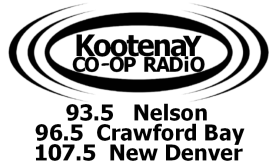
CJLY-FM, known on-air as Kootenay Co-op Radio, is a Canadian community radio station, which broadcasts at 93.5 FM in Nelson, British Columbia. The station also has rebroadcasters on 96.5 FM in Crawford Bay and 107.5 FM in New Denver, and 101.5 in Slocan and Castlegar.
In the United Kingdom, Community Radio refers to a system of licensing small, micro-local, non-profit radio stations, which started in 2002. In its early days, the pilot scheme was known as Access Radio. New legislation paved the way for this additional tier of radio, starting in 2005, and hundreds of community stations have since been set up. Unlike commercial radio licensing, which is generally advertised to cover a specific region, community radio stations are usually limited to broadcast areas smaller than commercial or BBC local stations, nominally within a 5 kilometres (3.1 mi) radius of their transmitter.
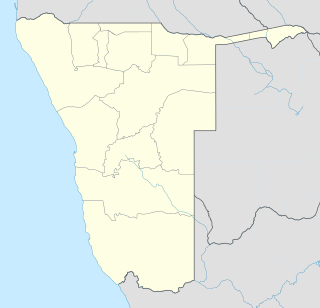
Katutura is a township of Windhoek, Khomas Region, Namibia. Katutura was created in 1961 following the forced removal of Windhoek's black population from the Old Location, which afterwards was developed into the suburb of Hochland Park. Sam Nujoma Stadium, built in 2005, is located within Katutura. Katutura Community Radio, a community-based radio station, also operates from the township. Katutura State Hospital, one of two State Hospitals in the Windhoek area, is located in the township.
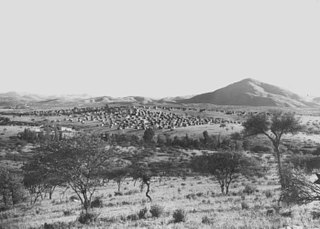
The Old Location was an area segregated for Black, Brown and Yellow residents of Windhoek, the capital of Namibia. It was situated in the area between today's suburbs of Hochland Park and Pioneers Park.

CKFG-FM is a Canadian radio station which broadcasts an urban adult contemporary format at 98.7 FM in Toronto, Ontario. CKFG's studios are located on Kern Road in the Don Mills neighbourhood of North York, while its transmitter is located at the top of First Canadian Place in Downtown Toronto.
SheffieldLive!, also known as SheffieldLive! 93.2FM, is a community radio and TV station established in 2003 as an independent company by the Community Media Association and is based in the city centre of Sheffield, England.
Mass media in Namibia includes radio, television, and online and print formats.
WOOK was a radio station that operated on 1340 kHz in Washington, D.C. Owned by Richard Eaton's United Broadcasting, the station was known for its programming for the African American community in the Washington metropolitan area; prior to that, in the 1940s, it was an independent station owned for several years by the Washington Post. WOOK, which spawned an FM station (WFAN) and a TV station, had its license revoked by the Federal Communications Commission in 1975 for an illegal numbers racket. In 1976, with the station's fate nearly sealed, WOOK became Spanish-language WFAN, in a format swap that allowed the Black-formatted WOOK intellectual unit to stay alive. WFAN ceased operating on April 22, 1978; on August 15, WYCB began broadcasting on its frequency.
References
- ↑ Moore, Paul (2009). "From the Bogside to Namibia: The place of community broadcasting in post-conflict cultural reconstruction". Radio Journal. 6: 45–58 – via 360 Link.
- ↑ "Katutura Community Radio". Archived from the original on 2007-08-07. Retrieved 2008-04-06.
- ↑ Namibia/United Kingdom: BBC relayed on Katutura Community Radio. (5 April). BBC Monitoring Media,1.
- ↑ Namibia: Katutura Community Radio hopes to be back on air by September 2003. (5 June). BBC Monitoring Africa - Political,1
- ↑ So You Think You're Funny? (21 May). Africa News Service,1.